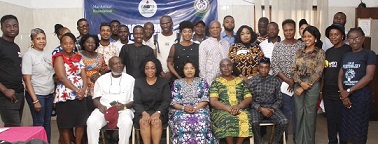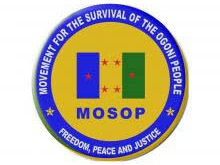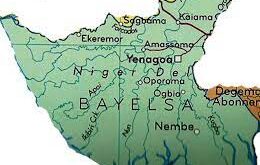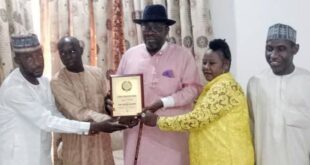By Paul Williams
The role of the media in promoting gender equality and social inclusion was the main focus of a capacity building workshop organized for journalists in Akwa Ibom and Rivers states by Kebetkache Women Development and Resource Center.
The event which took place in Port Harcourt last Friday, with support from MacArthur Foundation and Women Rights Advancement and Protection Initiative (WRAPA), brought together over 20 journalists from both states, who are members of Kebetkache Media Against Gender Violence and the Niger Delta Journalists for Environmental Justice.
Executive Director of Kebetkache Women Development and Resource Center, Obonganwan (Dr.) Emem Okon, said, the aim was to deepen awareness among journalists in Rivers State on issues of gender equality and social inclusion.
Fielding resources persons such as Dr Okon herself, renown journalist and publisher, Chief Constance Meju, and legal expert, Rosemary Nko Dokubo Esq, the workshop explored the nuances of gender abuse and domestic violence, and other forms of violence against women and those living with disability.
Dr. Emem Okon, in her presentation, noted that increased awareness would make those in authority, at the various levels of government, to take action against gender-based violence and inclusion.
“The essence of the training is to mobilise the media to report on issues of gender-based violence, to improve and increase understanding of what constitutes gender-based violence,” she said.
Okon noted that reports on sexual violence and rape has encouraged a lot of survivors to come out and overcome the stigma, adding that the main purpose of engaging with the media was to improve the way the authorities respond to the issues.
“We are expecting that at the end of this training there would be increased reporting of gender-based violence and that media people would reach out to more people that are directly involved in gender-based violence and to let them know what to do when they are affected or see somebody suffering such,” Okon said.
She urged the media to do more in reaching out to the grassroots.
“I don’t think more is being done at the local and community levels to address issues of gender-based violence.
“At the national and state levels, there are legislations but how do we work to enforce and implement this existing legislations particularly at the local level and how is it being translated at that level, the local government is the closest to the people so if the people at the state capitals are enlightened and have knowledge of these existing legislations, the people at the community do not even have access to the media, they don’t have access to legal services so how are they coping?”
Dr Okon also called for a change of attitude towards women by the local and community leaders.
“My interest would be that the local government still has a long way to go to endorse the legislation and begin to implement and enforce.
“Also, the community leaders, what’s has been their roles in addressing this issues because the main cause of gender stereotypes are the social norms, traditions and customs, so there is need for a change in mindset, a change in practices and that means that Advocacy should be targeted more at the people that can influence the system at the local level,” she stated.
Facilitator of the training, Chief Constance Meju said the government should consider women while enacting policies so as to engender social inclusiveness noting most government policies don’t have place for women.
She maintained that women issues are national issues noting that the health of women determines the health of the nation but issues around them are allowed to take the back stage in the society, a situation that does not promote sustainable development.
“What we have to tell the government is that women need to be built into policies. Most policies as they are doing not have spaces for women.
“The issues around them such as their health, finance, family value issues amongst others need to be addressed.
“What government need to do is that any policy that is to be made, mainstream women into that policy because it’s affects them and women are 49 percent of the Nigeria population and 33 percent of the voting population. Women have been faithful to Nigeria so Nigeria should payback”, Meju said.
Rosemary Nko Dokubo Esq, legal expert and Board member of Kebetkache Women Development and Resource Center, raised concern that laws to protect women are there but implementation has continued to be problem.
Said she: “The laws are sufficient but the problems are in the areas of implementation. Reporters need to sensitize the public on existing legislations on Violence Against Persons Prohibition Act, VAPP’’
According to her, VAPP protects both the man and the woman and Section 38 of the said the law also creates an opportunity for the victims to be treated.
She identified some of the acts of violence against women as lack of access to land, lack of access to clean water, rape, assault, victimization, sex for grade, emotional and psychological abuse, harmful traditional practices and women accounting for 70 persons living, in poverty among others.
Other issues mentioned were farm lands being taken away from women in communities without compensation as their livelihoods are affected. Perpetrators of gender-based violence were identified as persons close to victims, including top politicians, top military personnel, community chiefs, while religious worship centres, workplaces, and schools were likely environments.
One of the participants, a radio presenter with Atlantic FM, Uyo, in Akwa Ibom State, Miriam Daniels, applauded the organisers, adding that the workshop had deepened her understanding of issues surrounding gender equality and social inclusion.
She said such capacity building workshops are necessary if the journalist is to adequately perform his expected role in the society.
 PH Mundial – Port Harcourt Online Newspaper News Across The Region
PH Mundial – Port Harcourt Online Newspaper News Across The Region





